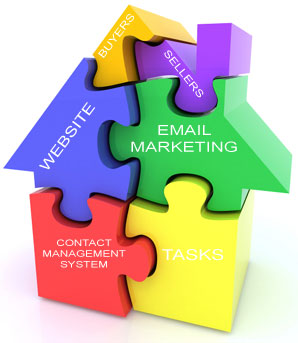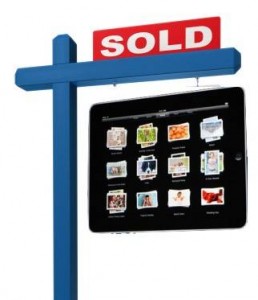 In most industries, technology has change the way people do business. For real estate, technology has had an enormous impact on communications and presentation. The evolution of technology has transformed the desktop PC into a series of mobile devices, powerful in capability and performance. With tablets, smart phones, laptops, GPS systems, CRM software, and many other powerful financial solutions, the ordinary business man is equipped in a way generations before could not have imagined. The special thing about technology, which is particularly useful to real estate, is the fact that most every-day devices are now integrated with one another.
In most industries, technology has change the way people do business. For real estate, technology has had an enormous impact on communications and presentation. The evolution of technology has transformed the desktop PC into a series of mobile devices, powerful in capability and performance. With tablets, smart phones, laptops, GPS systems, CRM software, and many other powerful financial solutions, the ordinary business man is equipped in a way generations before could not have imagined. The special thing about technology, which is particularly useful to real estate, is the fact that most every-day devices are now integrated with one another.
Beginning with the phone: users have the ability to call, text, email, and browse the internet right from the palm of their hand. The National Association of Realtors and Google 2013 estimate that 89% of new home owners begin their property search on a mobile device , which is why real estate agents cater directly to this platform, providing an easy point-of-contact and a highly visual method of property presentation. Take, for example, RE/MAX Design Centre, which allows agents to create marketing material remotely and immediately broadcast online to social media, build links to other websites, and track real-time traffic analytics.
 Between mobile app development, cloud servicing, online calculators and financial tools, as well as international social media involvement, real estate agents can use technology to enhance listing exposure, which in turn accelerates the process of prospecting. Interestingly enough, technology has enabled consumer independence to some degree, yet has managed not to alienate the real estate agent. Since 90% of home buyers use the internet to a find property, according to The National Association of Realtors and Google 2013, they are able to take advantage of many tools available online. LeadStreet allows customers to view listings from over 70 countries, with additional resources for comparing home values, mapping, reviewing buyer/seller information, reading articles, and receiving automated e-mail alerts. Another example, LoopLink, has become an invaluable tool for large-scale marketing, with automatic listing delivery to several high-traffic property directories.
Between mobile app development, cloud servicing, online calculators and financial tools, as well as international social media involvement, real estate agents can use technology to enhance listing exposure, which in turn accelerates the process of prospecting. Interestingly enough, technology has enabled consumer independence to some degree, yet has managed not to alienate the real estate agent. Since 90% of home buyers use the internet to a find property, according to The National Association of Realtors and Google 2013, they are able to take advantage of many tools available online. LeadStreet allows customers to view listings from over 70 countries, with additional resources for comparing home values, mapping, reviewing buyer/seller information, reading articles, and receiving automated e-mail alerts. Another example, LoopLink, has become an invaluable tool for large-scale marketing, with automatic listing delivery to several high-traffic property directories.
The customer of today has more at their disposal than agents had in the mid-to-late 20th century — to some extent. But these tools benefit both parties. Not only can realtors easily develop customer relationships — through social media, face-to-face platforms like Skype, email, or mobile phones — but they are also able to stay connected with one another using resources such as RE/MAX Web Roaster and MainStreet. MainStreet, in specific, is a members-only extranet, where professionals interact and exchange referrals, watch tutorials, share ideas, and buy partnered products. There are even full-length courses available to ensure that agents remain as knowledgeable and helpful as they can be on today’s market.
Technology has evolved the real estate industry into an open, accessible market. It has overcome the obstacle of distance and allows for a more efficient transaction. Real estate has transcended the confounds of the office and now requires active interaction. At the end of the day, however, although the medium in which business is conducted has changed, the core of real estate has stayed the same: agents helping to connect people with their ideal home in the ideal place. And that will never change.
 Torontonian Online Running in the fast lane! Real estate and more…
Torontonian Online Running in the fast lane! Real estate and more…





